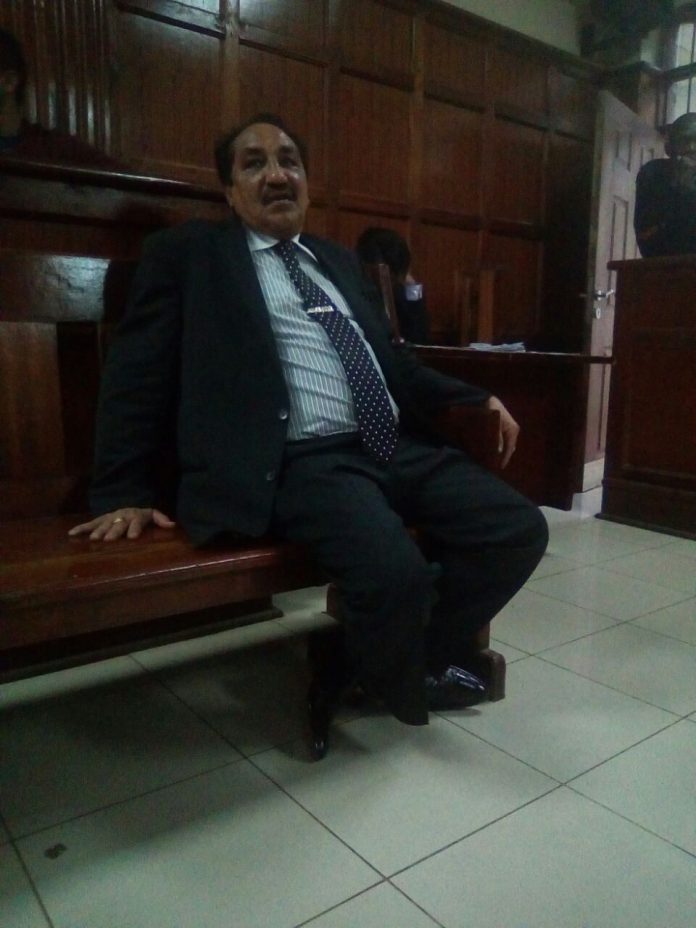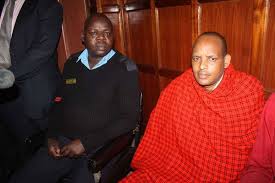The High Court in Nairobi has dismissed an application by London Distillers (K) Limited seeking to quash the decision by the Commissioner for Domestic Taxes demanding them to pay over half a million excise tax.
Justice Alfred Mabeya ruled that the taxman’s decision was not illegal, irrational or un-procedural as contended by London Distillers.
“In the view of the foregoing, the application dated 1st April 2022 is without merit and is hereby dismissed,” the judge ruled.
Through its boss Mohan Galot, London Distillers moved to court seeking an order of certiorari quashing the decision by the commissioner demanding payment of Sh 517,118,680.
The firm also sought an order prohibiting the commissioner’s enforcement of the decision.
Tax abandonment
Galot argued that vide a letter dated 15th September 2021, London Distillers applied to the Cabinet Secretary, National Treasury and planning for abandonment of the said Sh 517,118,680 which they had collected as excise duty in the course of its business.
According to Galot, the National Treasury allowed the application and approved abandonment of 80% of the outstanding principal excise tax and waived 100% of penalties and interest in accordance with section 31 and 89 of the Tax Procedures Act (TPA) 2015.
The court heard that the commissioner for domestic taxes vide an email dated 2nd September 2022, wrote to London Distillers acknowledging the outcome of the abandonment and demanded the sum of Sh 80 million, being the 20% outstanding tax arrears.
The parties then agreed the liquidation of the said amount by weekly instalments of Sh 7,500,000 beginning 2nd February 2022.
However, on 2nd March 2022, Tue commissioner advised London Distillers that after due consultation the approval given to them by the National Treasury had been rescinded and the entire sum of Sh 517,118,680 ought to be paid within seven days failure to which they would institute enforcement measures.
London Distillers argued that it did not receive any communication from the National Treasury rescinding its decision nor was there an application or hearing to rescind the decision.
According to the distillers, the commission acted arbitrary and in excess of its powers by unilaterally arriving at a decision parallel from that of the National Treasury.
It was contended that the commissioner for domestic taxes had unilaterally assumed powers of the National Treasury under the TPA and set aside its decision in the absence of the parties involved.
Self-assessment returns
On their side, the commissioner for domestic taxes opposed the application by London Distillers vide the replying affidavit of Victor Mino.
The court heard that London Distillers did a self-assessment returns for January 2020 to August 2021 for taxes amounting to Sh 529,278,680 but failed to remit the same.
The parties negotiated and entered into consents on settling the taxes.
“However, instead of complying with the settlement aforesaid, on 15th September 2021, the ex parte applicant applied for abandonment of the taxes to the National Treasury.
Afterwards, the Treasury wrote to the commission seeking bits advise on the application.
The commission advised on 22 and December 2021 that the application by London Distillers failed to meet the threshold under section 37 of the TPA.
“Nevertheless, Treasury partially allowed the abandonment,” the taxman added.
The court heard the taxman then wrote to the Treasury and the Attorney General on 1st January 2022 explaining to them what agency taxes entailed.
The AG advised Treasury on the the legal position and procedure for abandonment of taxes.
Mino told the court that the process of abandonment was supposed to be initiated by the commissioner if he determined that the application met the threshold for abandonment for approval of the Cabinet Secretary Treasury, not vice versa.
He averred that the CS agreed with the commissioner and rescinded the approval by the Principal Secretary and the same was communicated to London Distillers on 2nd March 2022.
The taxman contended that excise duty was an agency tax meaning that the actual payers were the consumers of London Distillers’ products.
Mino added that the firm was an agent of the government and was mandated to collect and remit the excise tax.
“That an abandonment of the tax was equivalent to allowing the ex parte applicant t finance its operations by using taxpayers money/taxes,” Mino said.
The court ruled that the decision by the Treasury was contrary to section 37 and thus void and could not be implemented.
Section 37
Section 37 provides that the taxman may abandon taxes where it may be impossible to recover the unpaid tax, where there is undue difficulty or expense in the recovery of an unpaid tax or where there is hardship or inequity in relation to the recovery of an unpaid tax.
Section 89 (6) provides that a person liable to a penalty or interest may apply in writing to the commissioner for the remission of the penalty or interest payable and such application shall include the reasons for the application.
According to Justice Mabeya, it was clear that section 37 only applies where the commissioner himself determines that the grounds therein exist.
The judge further ruled that only the commissioner can invoke that provision after which he refers the matter to the CS for approval.
“The foregoing being the case, Treasury had no business to purport to allow the abandonment of 80% of the admitted taxes. It was extreme abuse of power and office on the part of the Treasury,” the judge added.
Justice Mabeya added that the taxman ought not to be put in a position whereby it complies with ministerial directives which are illegal or unlawful.
He added that the respondent, being the master of taxes and tax laws, had a duty to evaluate the application for abandonment of taxes vis a vis the statutory requirements to be met before such approvals are issued.
“He similarly had a duty to confirm that the right procedure had been followed,” the judge ruled.










